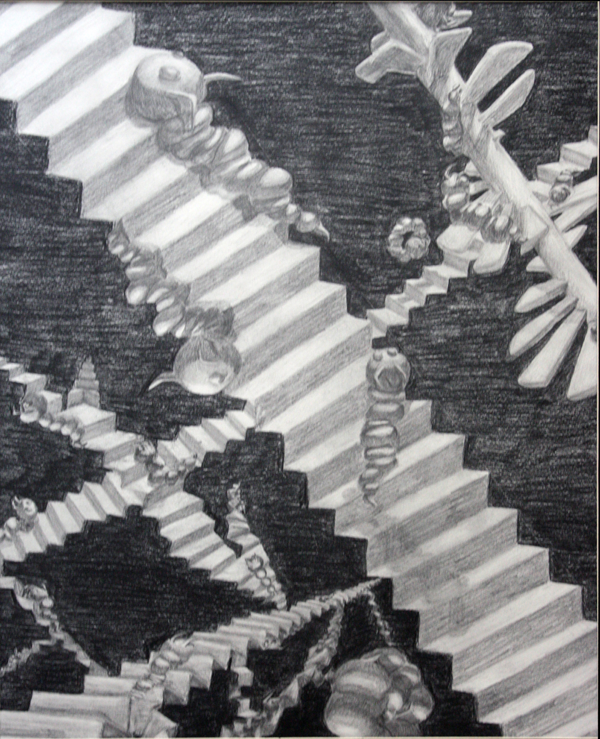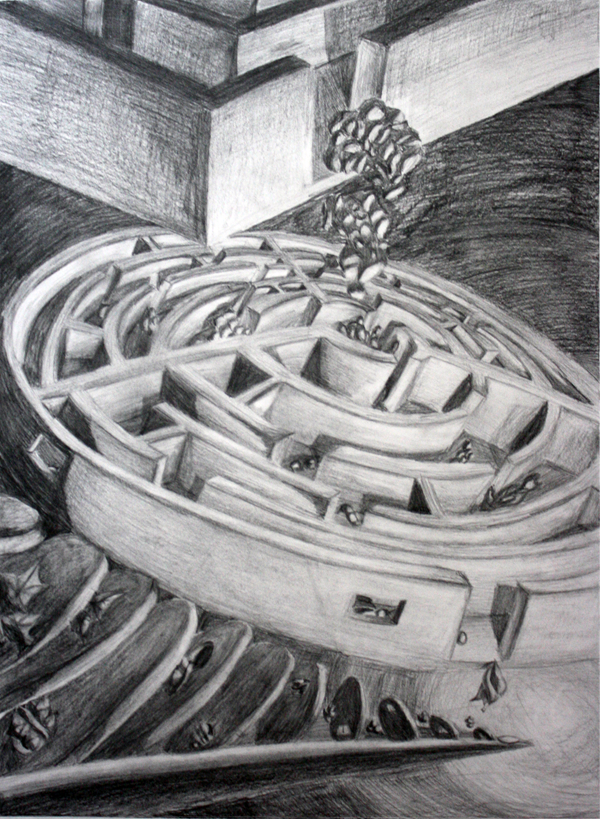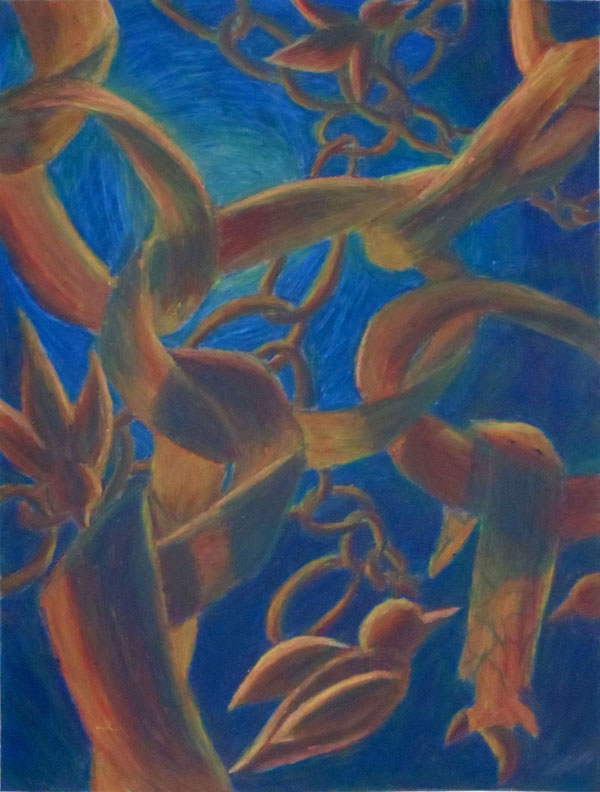Just how does your brain work?
In all honesty, how much do we understand about the mind? Apart from psychologists and sociologists, we never really think intensely about abstract concepts. For instance, what exactly is a "thought"? From the psychological (not biological) perspective, how do you "think"?
In all honesty, how much do we understand about the mind? Apart from psychologists and sociologists, we never really think intensely about abstract concepts. For instance, what exactly is a "thought"? From the psychological (not biological) perspective, how do you "think"?
From a scientific perspective, psychology is just utter chaos. There are too many variables that one needs to keep track of in order to study and part of it. In essence, I am representing how baffling and disorganized human minds can become.
This part includes the general aspects of the mind - the parts of our psyche that we always associate with the brain: thinking, remembering, processing, knowing, creating, and feeling.
Work 2010 - 2012

Thoughts: Racing Ideas
Graphite, 19"x24"
Have you ever really thought about how you think? It's not quite as simple as you would expect: your thoughts go up, down, forwards, backwards, around. They jump off tangents, branch off in ways you never expect. Thoughts, it seems, epitomize the expression "chaos has order".

Processing: Filtering Out the Chaos
Graphite, 18"x24"
In our minds, we sift through thousands of little thoughts, processing information, interpreting it, and determining a response of sorts. In every second, we experience so many sensations that if our minds did not fiter out the information, we would be overwhelmed every waking (and even every unconscious) moment. Thus, our brain filters through the information, that amorphous mass of raw data, and organizes it. Some gets lost, never to be consciously noticed, but others will come to the surface, and, along with others, will elicit a response.

Knowledge Breeds Knowledge
Graphite, 24"x18"
Our brain has an astounding capacity for knowledge - the processing power of the human brain has the potential to surpass any computer we have created to date. The reason? Knowledge breeds knowledge, stimulating the chain reaction we know as "learning".

Memory Links
Oil pastel, 19"x24"
Our memories are perpetually being created, perpetually intertwined. Remembering, in itself, is a cyclic process: you first witness through sensation, which makes it short term, which is transferred to long term, which, upon recall, will reestablish it as short term, thus strengthening the memory. And memories are so thoroughly intertwined: try to imagine a vivid memory with just its visual impact. Difficult to filter out all the scents, the emotions, the backstory, is it not?

Creativity: An Explosive Epiphany
Oil pastel, 18"x24"
Creativity is one of those mystifying, mythological things that some people have a lot of while others lack true originality. Some people's creative lights just burn a little brighter than others; some people's lightbulbs, particularly those of artists, musicians, and other creators, explode like the Pandora's Box on a regular basis, shining its mystic light into everything. Yet true creativity is actually just a uniquely formed synthesis of one's environment - the things one sees, hears, reads, feels - one creative thought may even yield another, going back through the electrochemical loops of one's own mind.

Intuition: Following Your Gut
Acrylic paint, 24"x18"
The main organs in the gastrointestinal tract contain over 500 million neurons that are intricately linked with our brain's limbic system. Thus, it is not surprising that "gut feelings" tend to lead us to good results - the intestines can be smarter than our heads at times. Cravings are just the gut-brain noticing a lack in a particular nutrient and stimulating a subconscious desire. Bad feelings in the gut are more provocative than cerebral "instincts" - the primal feeling of fear is deeply embedded with the need to protect the vital organs.

"Emotions: The Emotional Distillery"
Acrylic, 24"x32", irregular.
We always think of emotions as this very simple breakdown, with fine lines between each emotion. If you are happy, you cannot be mad, and vice versa. But in reality, our emotions are just neurotransmitters passing throughout our brains in various patterns, causing different physiological responses. Every emotion is chemically present; it is all based on concentrations - which emotion will boil over first? That is what we really feel - a plethora of raw feeling, which we filter out just enough to put a label on it.
Acrylic, 24"x32", irregular.
We always think of emotions as this very simple breakdown, with fine lines between each emotion. If you are happy, you cannot be mad, and vice versa. But in reality, our emotions are just neurotransmitters passing throughout our brains in various patterns, causing different physiological responses. Every emotion is chemically present; it is all based on concentrations - which emotion will boil over first? That is what we really feel - a plethora of raw feeling, which we filter out just enough to put a label on it.


